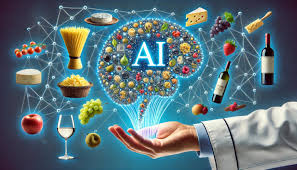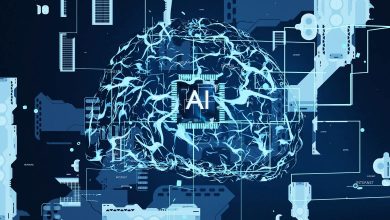Generative AI in the Food Industry: Innovating Recipes and Nutrition

The quest for culinary innovation has always pushed the boundaries of flavor, presentation, and cultural fusion. Today, generative AI is taking this evolution a step further by transforming how we conceptualize and create food. From suggesting new ingredient combinations to crafting personalized meal plans, AI-driven insights are helping chefs, nutritionists, and home cooks deliver unique dining experiences. As consumers demand healthier choices and more adventurous flavors, generative AI models stand poised to redefine our relationship with food—making recipes both more inventive and more aligned with individual preferences and dietary needs.
Expanding the Culinary Imagination
Traditionally, recipe development relied on the expertise of skilled chefs and the slow process of trial and error. Now, generative AI models, trained on vast collections of cookbooks, nutritional databases, and global culinary traditions, can propose novel ingredient pairings and cooking techniques in minutes. Imagine inputting a few base ingredients—say, chickpeas, kale, and turmeric—and receiving suggestions for flavor-enhancing additions, plating ideas, and complementary textures.
Professionals eager to harness this technology might consider taking a generative AI course, where they learn the underlying principles and best practices for integrating AI-driven tools into the creative process. Armed with this knowledge, culinary experts can use AI not only as a source of inspiration but also as a reliable collaborator that accelerates experimentation and refines concepts.
Tailoring Nutrition to Individual Needs
Modern consumers value health and well-being as much as taste. Generative AI can interpret nutritional guidelines, dietary restrictions, and personal goals to design balanced meal plans that meet specific needs. Whether someone follows a vegan lifestyle, manages a gluten allergy, or requires a diet high in protein, AI models can recommend recipes that hit the right macronutrient ratios, incorporate essential micronutrients, and align with taste preferences.
By analyzing feedback from users—such as ratings, comments, and consumption patterns—AI refines its suggestions over time. This iterative approach ensures that meal plans remain relevant, flexible, and appealing. For those looking to deepen their understanding of machine learning’s role in personalizing diets, an AI course in Bangalore can provide hands-on experience, teaching them how to merge nutritional data with generative models for more accurate, user-centric recommendations.
Reinventing Cultural Cuisines
Food is deeply entwined with culture, tradition, and heritage. Generative AI’s ability to draw upon vast repositories of recipes from around the world allows it to propose variations that respect cultural authenticity while introducing subtle updates. A classic Italian pasta dish might get a modern twist with a new sauce inspired by Middle Eastern spices, or a traditional Indian thali could be adjusted for plant-based diets without losing its essence.
By encouraging cross-cultural pollination, AI-generated recipes can spark culinary innovations that reflect our interconnected global community. Chefs who have completed a generative AI course can guide these models to ensure that their outputs maintain cultural integrity, preserving core flavors and techniques while welcoming novel influences.
Sustainable and Ethical Food Choices
As concerns about the environment as well as resource consumption grow, generative AI can play a pivotal role in promoting sustainable eating habits. Models can consider factors like carbon footprint, water usage, and seasonality when recommending ingredients. By prioritizing locally sourced produce, reducing meat intake, or substituting high-impact foods, AI-driven suggestions align culinary creativity with ecological responsibility.
Over time, feedback loops between diners, AI systems, and suppliers can enhance this sustainable focus. Professionals who have taken an AI course in Bangalore may develop the skills to incorporate sustainability metrics into their generative models. Such integration ensures that the culinary output not only delights palates but also helps protect the planet’s resources for future generations.
Optimizing Food Supply Chains and Inventory
Beyond the kitchen, generative AI can support the broader food industry by helping restaurants, caterers, and retailers manage their supply chains more effectively. Predictive analytics can gauge demand patterns, forecast ingredient requirements, and suggest adjustments to menus that reduce waste. By aligning inventory with customer preferences and seasonality, businesses can minimize losses and ensure fresher, higher-quality offerings.
When connected to POS systems, delivery platforms, and supplier databases, these AI models can even propose dynamic menu changes in real-time—recommending, for example, a switch to a cabbage-based side dish if lettuce runs low. By translating complex operational data into actionable insights, AI empowers organizations to be more agile, cost-effective, and responsive to evolving consumer tastes.
Enhancing Home Cooking and Meal Prep
While professional kitchens stand to gain immensely from generative AI, home cooks also benefit. Imagine a virtual assistant that helps plan weeknight dinners based on what’s in the fridge, dietary preferences, and the time available for cooking. Such a system might recommend a quick stir-fry to use up leftover vegetables, paired with a sauce from the pantry, and finished with a garnish inspired by a foreign cuisine.
As users provide feedback—whether they loved the dish or found it lacking—AI refines its suggestions, gradually becoming an indispensable sous-chef in everyday life. For culinary enthusiasts passionate about technology, completing a generative AI course provides insights into how to customize these tools. They can train models to cater to personal tastes, dietary shifts, or family traditions, making AI-driven cooking as personal and meaningful as a handwritten recipe passed down through generations.
Data-Driven Culinary Creativity
The food industry has long relied on intuition, experience, and personal flair. Generative AI doesn’t replace these human elements; instead, it enhances them. By processing as well as analyzing massive volumes of data, AI can highlight unexpected patterns—such as a flavor combination that consistently earns high ratings or an overlooked ingredient that might add depth to a dish.
Chefs can then incorporate these insights into their creative process, experimenting with greater confidence. Over time, this data-driven approach can spark new culinary movements and trends. Professionals who have taken an AI course in Bangalore can unlock these analytical capabilities, ensuring that they not only embrace technological innovation but also maintain the soul and artistry of cooking.
Ethical and Cultural Considerations
While the possibilities are exciting, the use of AI in the food industry also raises questions. Are we risking the homogenization of cuisine, reducing culinary diversity to a handful of top-rated combinations? Could reliance on AI undermine the knowledge of traditional cooks and artisans who have honed their craft over generations?
Developers and culinary professionals must use generative AI responsibly, ensuring that models celebrate diversity, respect cultural legacies, and avoid bias. By incorporating varied training data and upholding ethical standards, the industry can ensure that AI-driven innovation doesn’t erode the cultural richness and human connection at the heart of food.
Conclusion
Generative AI is reshaping the food industry—from how recipes are conceived to how menus are managed and how home cooks prepare their meals. By merging human creativity with data-driven insights, the culinary world can push the boundaries of flavor, innovation, and nutrition. As chefs, nutritionists, restaurateurs, and home cooks adopt these tools, they gain the capacity to delight diners, improve health outcomes, and drive sustainability in our ever-changing global food landscape.
For those eager to explore these possibilities, a generative AI course offers valuable preparation. By understanding the mechanics and ethics of generative models, professionals and hobbyists alike can ensure that food’s future remains as vibrant, diverse, and soulful as its past—enhanced, not replaced, by artificial intelligence.
For more details visit us:
Name: ExcelR – Data Science, Generative AI, Artificial Intelligence Course in Bangalore
Address: Unit No. T-2 4th Floor, Raja Ikon Sy, No.89/1 Munnekolala, Village, Marathahalli – Sarjapur Outer Ring Rd, above Yes Bank, Marathahalli, Bengaluru, Karnataka 560037
Phone: 087929 28623
Email: [email protected]



